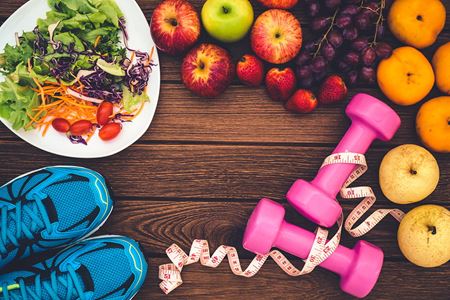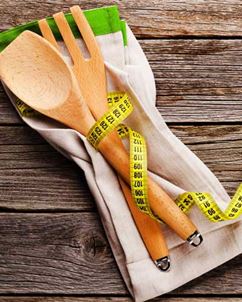Life’s Essential 8™ - How to Keep a Healthy Weight Fact Sheet
Stay in the Know
Your doctor or health care team can help you figure out if your weight is healthy for your age and body. A healthy weight helps your brain and heart function better.
Learn Your BMI
Body Mass Index (BMI) is a number that relates your weight to your height. Optimal BMI is less than 25. Less than 18.5 is underweight. You can calculate BMI online or see your health care professional.
Understanding Calories
Calories is how we talk about energy. They are the energy our body gets from foods and what we drink, which it uses for things like moving and breathing. Eating too many calories and not being active enough can lead to weight gain.
Ideas for Weight Management
- Increase the amount of fiber you eat and the water you drink.
- Add protein to your breakfast. Protein will help you feel full for longer.
- Avoid fast food when possible.
- Read nutritional labels for nutrition and calorie content. Pay attention to the number of serving sizes in each package.
Tips for Success
- Portions Matter: Learn about portion sizes and how much you need to eat to stay healthy.
- Get Active: Stress can trick your body into feeling hungry or craving unhealthy foods. Exercise can reduce stress.
- Eat Smart: Read food labels for nutrition and calorie content per serving.
- Get Help: Talk with your doctor or registered dietitian for help with managing your weight.
View or Download Fact Sheet
How to Keep a Healthy Weight (PDF)
This fact sheet is also available in the following languages:
- How to Keep a Healthy Weight - Arabic (PDF)
- How to Keep a Healthy Weight - Chinese Simplified (PDF)
- How to Keep a Healthy Weight - Chinese Traditional (PDF)
- How to Keep a Healthy Weight - French (PDF)
- How to Keep a Healthy Weight - Haitian Creole (PDF)
- How to Keep a Healthy Weight - Hindi (PDF)
- How to Keep a Healthy Weight - Korean (PDF)
- How to Keep a Healthy Weight - Navajo (PDF)
- How to Keep a Healthy Weight - Portuguese (PDF)
- How to Keep a Healthy Weight - Russian (PDF)
- How to Keep a Healthy Weight - Spanish (PDF)
- How to Keep a Healthy Weight - Tagalog (PDF)
- How to Keep a Healthy Weight - Vietnamese (PDF)
How to Manage Weight Resources
Life's Essential 8 Fact Sheets
- Life’s Essential 8 - How to Eat Better Fact Sheet
- Life's Essential 8 - How to Be More Active Fact Sheet
- Life's Essential 8 - How to Quit Tobacco and Nicotine Products Fact Sheet
- Life's Essential 8 - How to Get Healthy Sleep Fact Sheet
- Life's Essential 8 - How to Keep a Healthy Weight Fact Sheet
- Life's Essential 8 - How to Control Cholesterol Fact Sheet
- Life’s Essential 8 - How to Manage Blood Sugar Fact Sheet
- Life’s Essential 8 - How to Manage Blood Pressure Fact Sheet




